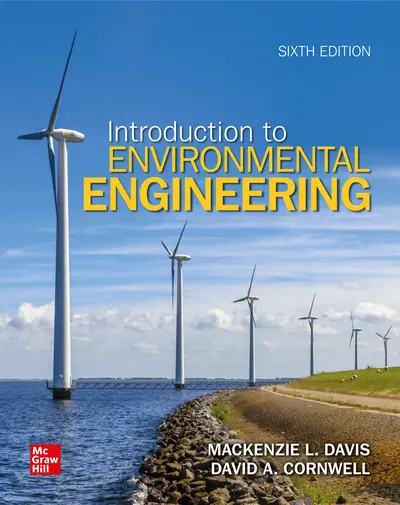Mackenzie Davis
Mackenzie L. Davis, Ph.D., P.E., BCEE, is an Emeritus Professor of Environmental Engineering at Michigan State University. He received all his degrees from the University of Illinois. From 1968 to 1971 he served as a Captain in the U.S. Army Medical Service Corps. During his military service he conducted air pollution surveys at Army ammunition plants. From 1971 to 1973 he was Branch Chief of the Environmental Engineering Branch at the U.S. Army Construction Engineering Research Laboratory. His responsibilities included supervision of research on air, noise, and water pollution control and solid waste management for Army facilities. In 1973 he joined the faculty at Michigan State University. He has taught and conducted research in the areas of air pollution control and hazardous waste management.
In 1987 and 1989–1992, under an intergovernmental personnel assignment with the Office of Solid Waste of the U.S. Environmental Protection Agency, Dr. Davis performed technology assessments of treatment methods used to demonstrate the regulatory requirements for the land disposal restrictions (“land ban”) promulgated under the Hazardous and Solid Waste Amendments.
Dr. Davis is a member of the following professional organizations: American Chemical Society, American Institute of Chemical Engineers, American Society for Engineering Education, American Meteorological Society, American Society of Civil Engineers, American Water Works Association, Air & Waste Management Association, Association of Environmental Engineering and Science Professors, and the Water Environment Federation.
His honors and awards include the State-of-the-Art Award from the ASCE, Chapter Honor Member of Chi Epsilon, Sigma Xi, election as a Fellow in the Air & Waste Management Association, and election as a Diplomate in the American Academy of Environmental Engineers with certification in hazardous waste management. He has received teaching awards from the American Society of Civil Engineers Student Chapter, Michigan State University College of Engineering, North Central Section of the American Society for Engineering Education, Great Lakes Region of Chi Epsilon, and the Amoco Corporation. In 1998, he received the Lyman A. Ripperton Award for distinguished achievement as an educator from the Air & Waste Management Association. In 2007, he was recognized as the Educational Professional of the Year by theMichigan Water Environment Association. He is a registered professional engineer in Michigan.
Dr. Davis is the author of a student and professional edition of Water and Wastewater Engineering and Co-author of Principles of Environmental Engineering with Dr. Susan Masten. In 2003, Dr. Davis retired from Michigan State University.
David Cornwell
David A. Cornwell, Ph.D., P.E., BCEE, is a registered professional engineer in 19 states and is the founder and president of the consulting firm Environmental Engineering & Technology, Inc. (EE&T) headquartered in Newport News, VA. He attended the University of Florida in Gainesville, FL, where he received his Ph.D. in civil/environmental engineering and has remained a loyal Gator fan ever since, serving as a Bull Gator and on the President’s Council. He was an associate professor in the Civil Environmental Engineering Department at Michigan State University prior to entering the consulting field. Many of Dr. Cornwell’s students now are active members of the water profession.
During his career as a consultant, Dr. Cornwell has provided process, design, and operational troubleshooting services to water utilities around the world. He has lectured and written on many aspects of water treatment, including over 50 peer-reviewed technical articles and reports. Much of his work has included the development of new and optimized water treatment processes. He has won three JAWWA Division best paper awards and the overall JAWWA publication award. Dr. Cornwell has an extensive record of service to the water profession. He has been an active member of American Water Works Association (AWWA) since the early 1970s and has served on numerous committees in that organization. He has chaired the Research Division and the Technical and Education Council, and served on the board of directors and executive committee of AWWA.
In 2005, Dr. Cornwell was the recipient of the A.P. Black Research Award given by AWWA to recognize excellence in water treatment research, recognizing his contributions to bridging the gap between research and application. Dr. Cornwell has been a principal investigator on over 20 Water Research Foundation research projects.

